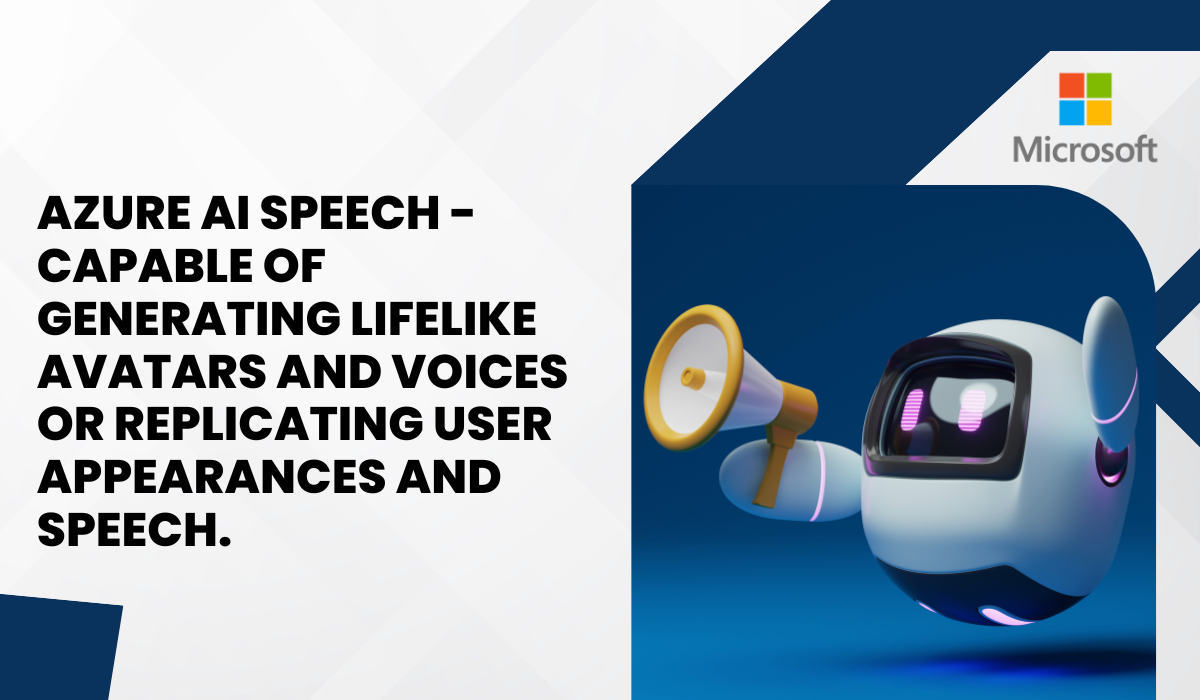
In a groundbreaking announcement during its developer conference this week, Microsoft introduced a cutting-edge software, Azure AI Speech, capable of generating lifelike avatars and voices or replicating existing user appearances and speech. While the development raises concerns about the potential acceleration of deepfake creation – AI-generated videos depicting fictitious events – Microsoft assures the public that safeguards have been implemented to address these worries.
Azure AI Speech, unveiled at Microsoft Ignite 2023, leverages artificial intelligence to create photorealistic avatars trained with human images. Users can input a script that the avatar will then articulate convincingly. The software offers the option to choose from preloaded Microsoft avatars or upload personal footage for replication purposes. Microsoft envisions the tool being employed for the development of conversational agents, virtual assistants, chatbots, and more.
In a blog post released on Wednesday, Microsoft emphasized the flexibility of the software, allowing customers to opt for either prebuilt or custom neural voices for their avatars. The post states, "If the same person’s voice and likeness are used for both the custom neural voice and the custom text-to-speech avatar, the avatar will closely resemble that person."
To allay concerns surrounding potential misuse, Microsoft disclosed that Azure AI Speech comes with limitations and safeguards as part of its commitment to responsible AI. The company emphasizes its dedication to protecting individuals' rights, fostering transparent human-computer interaction, and combatting the proliferation of harmful deepfakes and misleading content.
The blog post further explains that customers can upload video recordings of avatar talent, with the software using this footage to train a synthetic video of the custom avatar speaking. Microsoft describes "avatar talent" as a human posing for the AI's figurative camera.
Despite the groundbreaking nature of the announcement, criticism swiftly followed, with some labeling Azure AI Speech a "deepfakes creator." Microsoft countered these claims by characterizing the customized avatars as a "limited access" tool, requiring users to apply and gain approval from Microsoft. Additionally, users must disclose when AI is utilized to create a synthetic voice or avatar.
Sarah Bird, from Microsoft’s responsible AI engineering division, emphasized that with these safeguards in place, the company aims to limit potential risks and empower customers to integrate advanced voice and speech capabilities into their AI applications transparently and safely.
The introduction of the text-to-speech avatar maker marks the latest development in the ongoing race among major tech firms to capitalize on the artificial intelligence boom. In the wake of the popularity of ChatGPT, launched by Microsoft-backed firm OpenAI, other companies such as Meta and Google have expedited the release of their own AI tools.
With the rise of AI comes growing concerns about its capabilities, prompting industry leaders to address potential risks. Microsoft's president previously expressed deepfakes as a significant concern, leading the company to take proactive measures. Microsoft recently launched a tool allowing politicians and campaigns to authenticate and watermark videos for legitimacy, addressing concerns related to deepfake election interference. Meta also announced a new policy requiring disclosure of AI use in political ads and banning campaigns from using Meta's own generative AI tools for ads.
 0
0